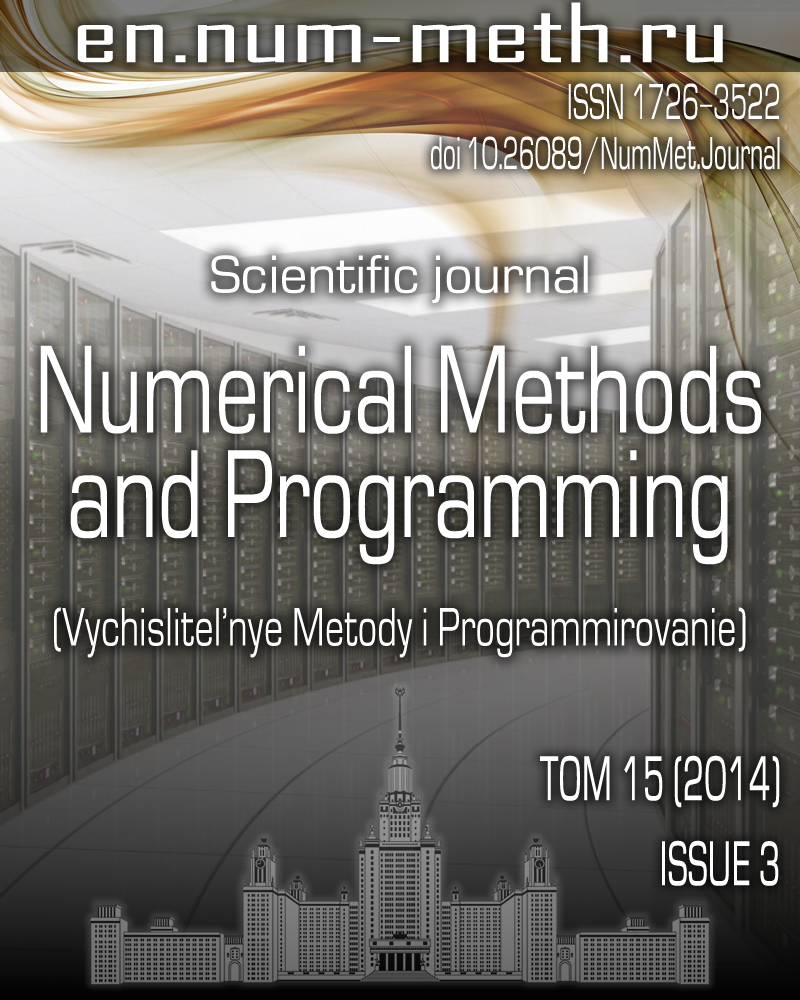A renormalized Gaussian approximation in the spin-fluctuation theory
Keywords:
Abstract
The effect of spin fluctuations on the magnetic phase transition is studied by the functional integral method. The interaction between spin moments at finite temperatures is replaced by the interaction with a stochastic (fluctuating) field. Calculation of magnetic characteristics is reduced to the integration over the fluctuating field configurations in the Gaussian approximation. A characteristic feature of the Gaussian approximation is the first-order phase transition. In this paper a method is proposed for renormalizing the Gaussian approximation by taking into account the fourth-order terms of the free energy expansion in the fluctuating field. By the example of the Ising model, it is shown that the renormalization leads to the second-order phase transition, which is observed in experiments.
Published
Issue
Section
References
- Moriya T. Spin fluctuations in itinerant electron magnetism. Berlin: Springer, 1985.
- Melnikov N.B., Reser B.I., Grebennikov V.I. Extended dynamic spin-fluctuation theory of metallic magnetism // J. Phys.: Condens. Matter. 2011. 23 (doi:10.1088/0953-8984/23/27/276003).
- Зинн-Жюстен Ж. Континуальный интеграл в квантовой механике. М.: Физматлит, 2006.
- Мельников Н.Б., Резер Б.И. Оптимальное гауссово приближение в теории флуктуирующего поля // Тр. Математич. института им. В.А. Стеклова РАН. 2010. 271. 159-180.
- Резер Б.И., Гребенников В.И. Температурная зависимость магнитных свойств ферромагнитных металлов с учетом динамики и нелокальности спиновых флуктуаций // Физика металлов и металловедение. 1998. 85, вып. 1. 30-42.
- Reser B.I., Melnikov N.B. Problem of temperature dependence in the dynamic spin-fluctuation theory for strong ferromagnets // J. Phys.: Condens. Matter. 2008. 20 (doi:10.1088/0953-8984/20/28/285205).
- Grebennikov V.I. A fluctuating field theory for systems of localized magnetic moments // Solid State Phenom. 2009. T. 152-153. 563-566.
- Murata K.K., Doniach S. Theory of magnetic fluctuations in itinerant ferromagnets // Phys. Rev. Lett. 1972. 29, N 5. 285-288.
- Lonzarich G.G., Taillefer L. Effect of spin fluctuations on the magnetic equation of state of ferromagnetic or nearly ferromagnetic metals // J. Phys. C: Solid State Phys. 1985. 18, N 22. 4339-4371.
- Takahashi Y. Quantum spin fluctuation theory of the magnetic equation of state of weak itinerant-electron ferromagnets // J. Phys.: Condens. Matter. 2001. 13, N 29. 6323-6358.
- Ландау Л.Д., Лифшиц Е.М. Теоретическая физика. T. V. Статистическая физика. Часть 1. М.: Наука, 1976.
- Паташинский А.З., Покровский В.Л. Флуктуационная теория фазовых переходов. М.: Наука, 1975.
- Larkin A., Varlamov A. Theory of fluctuations in superconductors. Oxford: Oxford Univ. Press, 2009.
- Hertz J.A. Critical spin fluctuations in itinerant electron ferromagnets // Int. J. Magnetism. 1971. 1. 253-306.
- Bruus H., Flensberg K. Many-body quantum theory in condensed matter physics. Oxford: Oxford Univ. Press, 2004.
- Плакида Н.М. Двухвременные функции Грина и диаграммная техника // Теоретическая и математическая физика. 2011. 168, вып. 3. 518-535.
- Зубарев Д.Н., Церковников Ю.А. Метод двухвременных температурных функций Грина в равновесной и неравновесной статистической механике // Тр. Математич. института им. В.А. Стеклова АН СССР. 1986. 175. 134-177.
- Мельников Н.Б., Романенко Ю.А. Оптимальная гауссова аппроксимация в модели Изинга // Вычислительные методы и программирование. 2012. 13. 452-464.
- Дэннис Дж., Шнабель Р. Численные методы безусловной оптимизации и решения нелинейных уравнений. М.: Мир, 1988.
- Conn A.R., Gould N.I. M., Toint Ph.L. Trust-region methods. Philadelphia: SIAM, 2000.
- Sun W., Yuan Y. Optimization theory and methods: Nonlinear programming. New York: Springer, 2006.
- Крылов В.И. Приближенное вычисление интегралов. М.: Физматлит, 1959.

